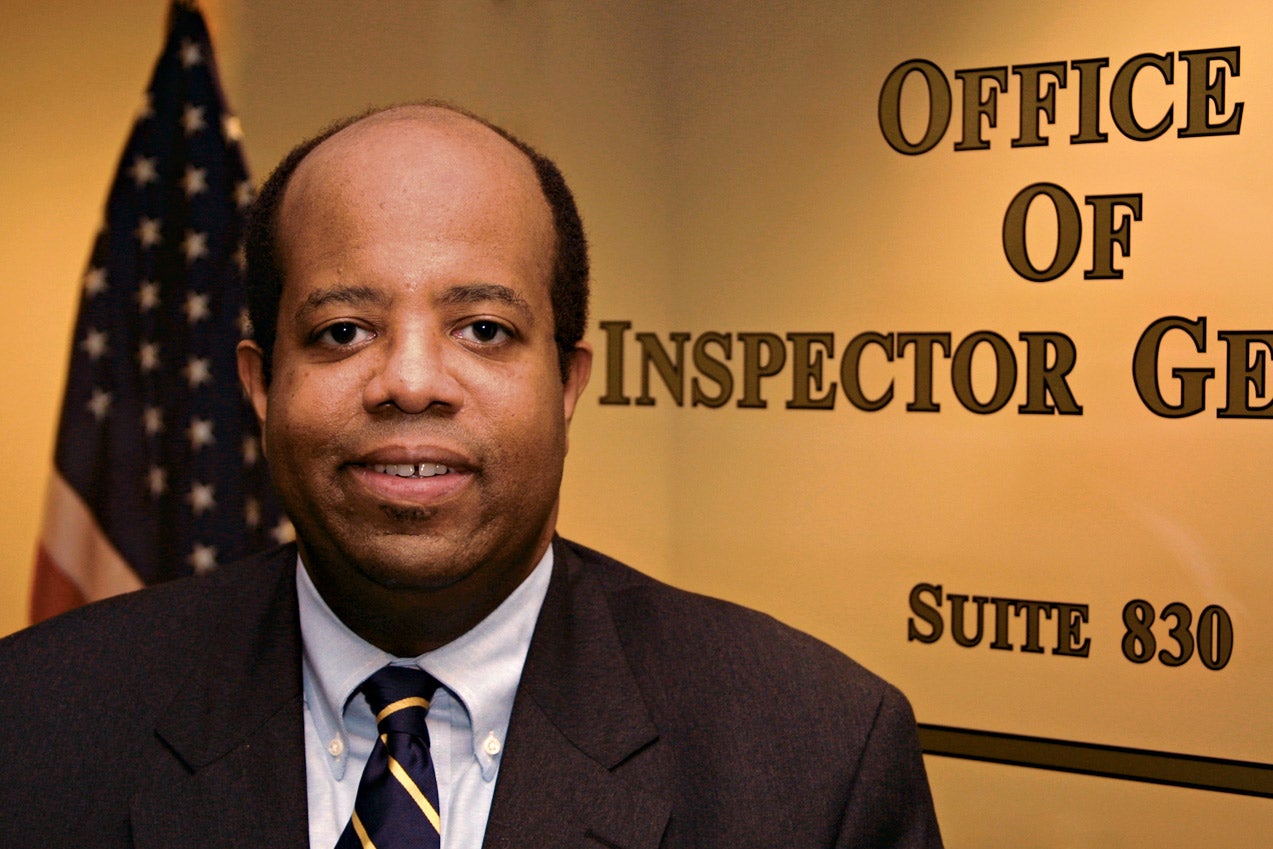As a college freshman, J. Russell George ’88 trolled the halls of Congress, hoping to get autographs from famous politicians such as Sen. Bob Dole.
Two decades later, George stood before Dole once again–this time as his career-long mentor swore him in to his new job as inspector general of the Corporation for National and Community Service, the parent agency of AmeriCorps. (At press time, George was nominated by President George W. Bush for the position of inspector general of the Internal Revenue Service and was awaiting confirmation by the U.S. Senate.)
In the intervening years, George’s career in public service as a prosecutor, congressional staffer and White House aide took him from his childhood home in Queens, N.Y., back to Washington, D.C.
Yet it was his teenage hobby of collecting autographs that shaped the course of his career.
Growing up in New York City, George and his brother stood outside Broadway theaters and NBC’s Rockefeller Center studios to get stars’ signatures. They snagged the likes of Elizabeth Taylor, Billy Joel and the cast of “Saturday Night Live.” But his real passion was politics, so after he enrolled at Howard University in Washington, D.C., he couldn’t resist walking to Capitol Hill in search of more autographs. He stood outside the Senate chamber one day during his freshman year with a pen and Senate directory when Dole approached and asked what names he still needed.
After going inside to vote, Dole returned with colleagues he’d cajoled into providing their signatures. Though George had never been to Kansas or registered as a Republican, he says that chance encounter convinced him that he wanted to work for Dole.
He pleaded his way into a job one day a week in Dole’s office making carbon copies. It turned into 30 hours a week in the mailroom between classes. “That changed my life,” said George. “I saw politics at the highest levels with a man committed to serving his nation.”
When George decided to apply to law school, Dole wrote one of his recommendations. In his Harvard Law application, George pledged to use his legal education to help his community–a promise he kept when he returned to Queens as an assistant district attorney at the height of New York’s crack epidemic.
Taking that job meant moving back home with his parents, but the sacrifice was worth it, George says: “I’ve had jobs throughout my career–especially this one–that I’d do for free.”
Two years later, he was back in Washington to work for President Bush’s Office of Management and Budget and then later on the White House staff, where he helped implement the National Service Act. There was also a stint at the law firm of Kramer, Levin and another as staff director and chief counsel for the House Government Reform subcommittee on government efficiency, financial management and intergovernmental relations.
He returned to the executive branch–almost a year to the day after the Sept. 11 attacks, which drove up interest in AmeriCorps and, he says, deepened his own commitment to public service. Created under President Clinton in 1993, AmeriCorps recruits young adults to do a term of community service throughout the country in exchange for a small stipend and education allowance.
With George’s mother holding the Bible, Dole swore him in on Sept. 4, 2002. “Russell is one of those outstanding young men who do a great job and have a great personality,” Dole said at the time.
As inspector general, George is the agency’s independent watchdog responsible for overseeing how money is spent. Much of his time has been devoted to heading an investigation into funding shortfalls at AmeriCorps. His office is in the same building as the rest of the CNCS, but his staff of 21 is in a separate suite of offices to ensure they can operate independently.
George says that separation means he doesn’t get to spend as much time as he’d like with AmeriCorps members. But he tries to make time to mentor, serving as a Big Brother for a Washington 5-year-old and speaking to high school students who visit Washington to attend seminars of the Close Up Foundation, which offers educational programs on government affairs.
One student called him up last spring to say that a talk of his had inspired him to work at CNCS. George guided him toward applying for a position as a congressional page–in the chamber where he’d gotten his start, thanks to an autograph.
